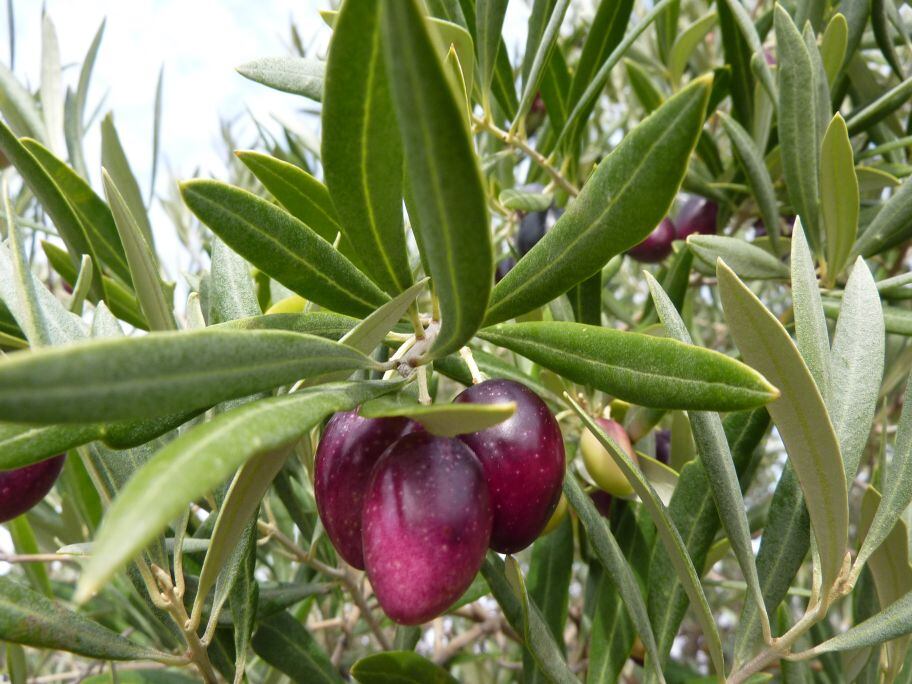The results of the Spanish PREDIMED trial -which began in 2003 and ended in 2011 - were so dramatic that it was ultimately stopped ahead of time for ethical reasons, said researchers, who unveiled their findings on day two of the 6th International Congress on Vegetarian Nutrition at Loma Linda University in California.
In the single-blind, randomized clinical trial published online ahead of print in the New England Journal of Medicine, 7,447 volunteers aged 55-80 at high risk of cardiovascular disease but with no symptoms, were divided into three groups.
No calorie restrictions

The control group was put on a low-fat diet (as per American Heart Association guidelines), and the two intervention groups were both put on Mediterranean diets rich in fresh fruits and veg, seafood, whole grains, mono-unsaturated fats and very low in meat and dairy.
The diet of the first intervention group was supplemented with 30g nuts a day (15g walnuts, 7.5g almonds and 7.5g hazelnuts); and the second with 50ml of virgin olive oil a day.
There were no calorie restrictions for any volunteers, who were monitored regularly. Compliance with the olive oil and nut prescriptions was also tested via analysis of urine (for hydroxytyrosol from olives), and blood (for alpha-linolenic acid from the walnuts).
Analysis of what the volunteers ate during the trial revealed that all three groups ate slightly fewer vegetables, and cut down on meat, sweets, dairy and alcohol. However, the major difference was that the intervention groups ate fewer carbohydrates and quite a bit more fat (of the mono-unsaturated variety from olive oil and other foods plus the polyunsaturated fat ALA from walnuts), more fruit, more legumes, nuts and olive oil.
The end points were heart attack, stroke, and death from cardiovascular causes.
The risk of stroke was reduced significantly in the two Mediterranean-diet groups
The results were so dramatic that the trial was stopped ahead of time as the control group was clearly at such a disadvantage, said study leader Dr. Miguel Angel Martinez at a press conference to discuss the findings.
The interventions, he said, “resulted in an absolute risk reduction of approximately 3 major cardiovascular events per 1,000 person-years, for a relative risk reduction of approximately 30%, among high-risk persons who were initially free of cardiovascular disease”.
The risk of stroke in particular was “reduced significantly [by 49%] in the two Mediterranean-diet groups”, while volunteers in these groups also had a reduced incidence of type 2 diabetes and metabolic syndrome, he added.
Meanwhile, volunteers in the Mediterranean diet groups had lower blood pressure and a better glucose and blood lipid profile.
Results support the benefits of the Mediterranean diet for the primary prevention of cardiovascular disease

While the control group consumed less total fat and fewer calories, this did not appear to do much for their cardiovascular health, he added.
“Our results compare favorably with those of the Women's Health Initiative Dietary Modification Trial, wherein a low-fat dietary approach resulted in no cardiovascular benefit.
“Perhaps there is a synergy among the nutrient-rich foods included in the Mediterranean diet that fosters favorable changes in intermediate pathways of cardiometabolic risk, such as blood lipids, insulin sensitivity, resistance to oxidation, inflammation, and vasoreactivity.
“An energy-unrestricted Mediterranean diet, supplemented with extra-virgin olive oil or nuts, resulted in a substantial reduction in the risk of major cardiovascular events among high-risk persons. The results support the benefits of the Mediterranean diet for the primary prevention of cardiovascular disease.”
It’s healthy to have a diet high in fat as long as it’s comes from unrefined plant sources as opposed to saturated fat from animal sources
Dr Joan Sabaté, professor in the Dept of Nutrition at Loma Linda University and chair of the vegetarian nutrition congress, said the results were stunning: “To get a 30% reduction in cardiovascular disease risk in five years is a powerful message.”
While the health benefits of a Mediterranean diet are well-documented, he said, “This is the most clear evidence in scientific circles to show the connection between nuts, extra virgin olive oil and reduced risk of cardiovascular disease, not only because of the [healthy, monounsaturated] fats they contain but also because of the polyphenols [nuts and olive oil also contain beneficial phytochemicals].
“It shows it’s healthy to have a diet high in fat as long as it’s comes from unrefined plant sources as opposed to saturated fat from animal sources.”
How does a Mediterranean diet compare with a vegetarian diet?
Asked whether it was accurate to describe the diet consumed by the intervention groups as ‘plant-based’ given that they ate meat, fish and dairy products, he said volunteers typically ate small amounts of all three groups.
And asked whether the cardiovascular benefits enjoyed by the intervention groups could be explained by differences in consumption of fish (which is rich in heart-healthy omega-3 long chain fatty acids) vs the control groups, Dr Martinez said this was unlikely as all three groups ate a similar amount of fish.
Meanwhile, individuals in the intervention groups with a diet scoring the highest on a pro-vegetarian index had the best outcomes of all, he said.
The take home message is not that you should add walnuts to your ice cream!
While nuts and virgin olive oil appeared to be key to the improved health outcomes, the take home message was that whole dietary patterns have to change to deliver results, he said.
“The message is not that you should add walnuts to your ice cream!”
Intervention groups consumed more calories - but had significantly reduced heart disease risk
An analysis of BMI scores and weight did not form part of the study, but an interesting finding was that the intervention groups consumed more calories than the control group, but remained at lower risk of heart disease, said Dr Martinez.
“The extra virgin olive oil group consumed 2,172 calories/day; the nuts group consumed 2,229/day and the control group consumed 1,960/day.”
In the next phase of the trial, the researchers plan to compare people on the energy unrestricted Mediterranean diets described above, with people on Mediterranean diets that include calorie restrictions and an exercise regime, he said.
Dietary Guidelines Committee must stand up and take notice of this
David Jacobs, PhD, Mayo professor in epidemiology at the University of Minnesota who made an impassioned plea from the podium on Sunday calling for nutrition researchers to focus on food and overall dietary patterns rather than the health benefits of isolated nutrients, said:
“What this study gives us is A-level evidence. The US Dietary Guidelines Committee will notice that.”
Click here to read more about research unveiled at the Congress.
Source: The New England Journal of MedicineFebruary 25, 2013DOI: 10.1056/NEJMoa1200303
Title: ‘Primary Prevention of Cardiovascular Disease with a Mediterranean Diet
Authors: Ramón Estruch, M.D., Ph.D., Emilio Ros, M.D., Ph.D., Jordi Salas-Salvadó, M.D., Ph.D., Maria-Isabel Covas, D.Pharm., Ph.D., Dolores Corella, D.Pharm., Ph.D., Fernando Arós, M.D., Ph.D., Enrique Gómez-Gracia, M.D., Ph.D., Valentina Ruiz-Gutiérrez, Ph.D., Miquel Fiol, M.D., Ph.D., José Lapetra, M.D., Ph.D., Rosa Maria Lamuela-Raventos, D.Pharm., Ph.D., Lluís Serra-Majem, M.D., Ph.D., Xavier Pintó, M.D., Ph.D., Josep Basora, M.D., Ph.D., Miguel Angel Muñoz, M.D., Ph.D., José V. Sorlí, M.D., Ph.D., José Alfredo Martínez, D.Pharm, M.D., Ph.D., and Miguel Angel Martínez-González, M.D., Ph.D. for the PREDIMED Study Investigators
